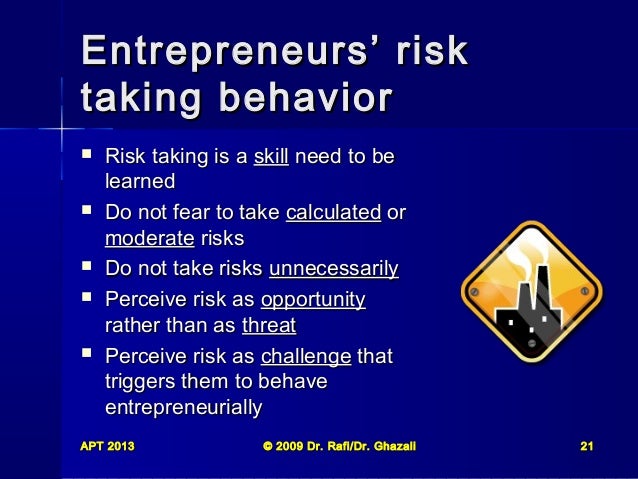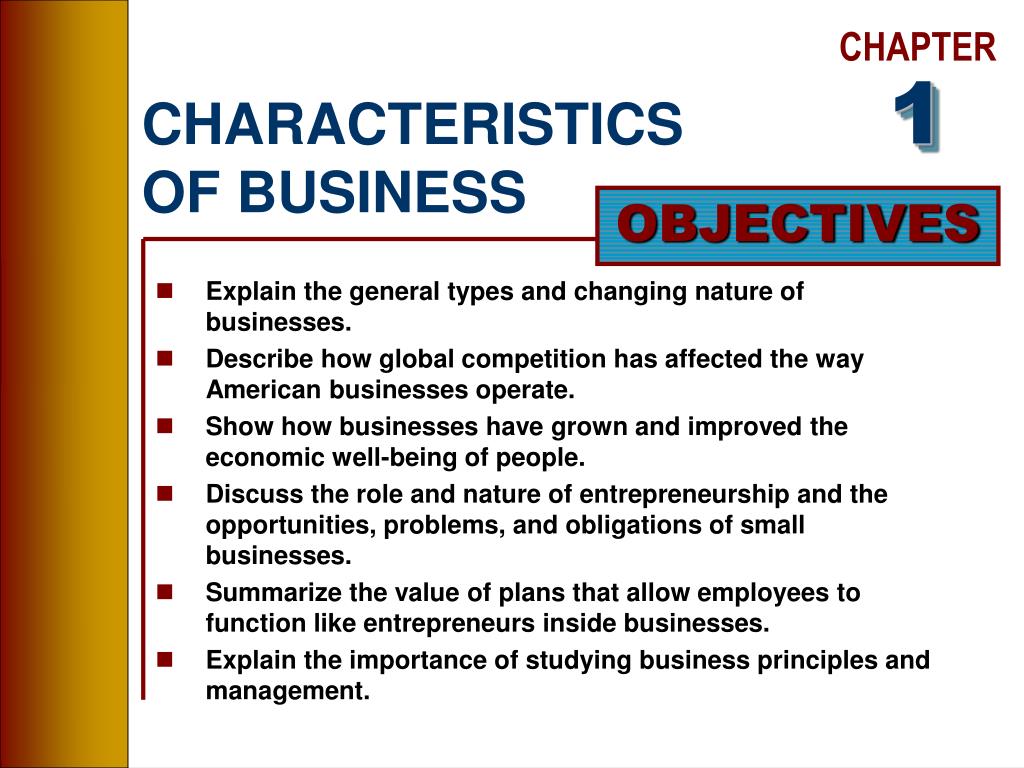The Mindset of a Successful Entrepreneur
A growth mindset, adaptability, and a willingness to learn from failure are essential characteristics of successful entrepreneurs. These traits enable them to navigate uncertainty, stay focused on their goals, and drive innovation in their businesses. By embracing challenges as opportunities for growth, entrepreneurs can develop the resilience and determination needed to overcome obstacles and achieve success.
Successful entrepreneurs understand that failure is an inevitable part of the learning process. Rather than fearing failure, they view it as a chance to learn and improve. This mindset allows them to take calculated risks, experiment with new ideas, and push the boundaries of what is possible. By doing so, they can stay ahead of the competition and drive growth in their businesses.
Adaptability is another key characteristic of successful entrepreneurs. They are able to pivot quickly in response to changing market conditions, customer needs, and technological advancements. This ability to adapt enables them to stay relevant, innovate, and drive growth in their businesses. By being open to new ideas and perspectives, entrepreneurs can stay ahead of the curve and achieve long-term success.
In addition to a growth mindset and adaptability, successful entrepreneurs also possess a strong sense of purpose and direction. They are able to set clear goals, prioritize tasks, and make informed decisions that drive their businesses forward. By staying focused on their vision and mission, entrepreneurs can overcome obstacles, build strong teams, and achieve their goals.
By cultivating a growth mindset, adaptability, and a strong sense of purpose, entrepreneurs can develop the characteristics needed to succeed in today’s fast-paced business environment. By embracing challenges, learning from failure, and staying focused on their goals, entrepreneurs can drive innovation, growth, and success in their businesses.
Key Personality Traits of Successful Entrepreneurs
Successful entrepreneurs possess a unique set of personality traits that enable them to navigate the challenges of building and growing a business. Among the most essential traits are resilience, self-motivation, and strong communication skills. These characteristics allow entrepreneurs to overcome obstacles, drive innovation, and build strong relationships with customers, partners, and team members.
Resilience is a critical trait for entrepreneurs, as it enables them to bounce back from setbacks and failures. Successful entrepreneurs like Richard Branson and Steve Jobs have all experienced significant failures throughout their careers, but they have used these experiences as opportunities to learn and grow. By developing a resilient mindset, entrepreneurs can stay focused on their goals and maintain a positive outlook, even in the face of adversity.
Self-motivation is another key trait of successful entrepreneurs. It enables them to stay driven and focused on their goals, even when faced with uncertainty and doubt. Entrepreneurs like Elon Musk and Mark Zuckerberg are known for their relentless drive and passion for their work. By cultivating a strong sense of self-motivation, entrepreneurs can stay committed to their vision and push through challenges to achieve their goals.
Strong communication skills are also essential for successful entrepreneurs. They enable entrepreneurs to build strong relationships with customers, partners, and team members, and to communicate their vision and goals effectively. Entrepreneurs like Howard Schultz and Mary Barra are known for their exceptional communication skills, which have enabled them to build strong brands and drive growth in their businesses.
Other key personality traits of successful entrepreneurs include a strong sense of curiosity, a willingness to take calculated risks, and a commitment to lifelong learning. By cultivating these traits, entrepreneurs can stay ahead of the curve and drive innovation in their businesses. By understanding the characteristics of successful entrepreneurs, aspiring entrepreneurs can develop the skills and mindset needed to achieve their goals and build successful businesses.
The Role of Strategic Thinking in Entrepreneurial Success
Strategic thinking is a critical component of entrepreneurial success. It involves the ability to set clear goals, prioritize tasks, and make informed decisions that drive business growth. Successful entrepreneurs like Jeff Bezos and Bill Gates are known for their strategic thinking, which has enabled them to stay ahead of the competition and drive innovation in their industries.
One of the key characteristics of strategic thinking is the ability to set clear and achievable goals. This involves identifying the company’s mission, vision, and values, and developing a roadmap for achieving success. By setting clear goals, entrepreneurs can focus their efforts and resources on what is most important, and make progress towards their objectives.
Another important aspect of strategic thinking is prioritization. This involves identifying the most important tasks and activities that need to be completed, and allocating resources accordingly. By prioritizing tasks, entrepreneurs can ensure that they are focusing on the most critical activities that will drive business growth.
Strategic thinking also involves making informed decisions. This involves gathering data and information, analyzing it, and using it to make decisions that drive business growth. By making informed decisions, entrepreneurs can minimize risk and maximize opportunities for success.
Successful entrepreneurs use strategic thinking to stay ahead of the competition and drive innovation in their industries. They are able to anticipate changes in the market, identify new opportunities, and develop strategies to capitalize on them. By staying ahead of the curve, entrepreneurs can drive growth and achieve their goals.
In addition to driving growth, strategic thinking also helps entrepreneurs to mitigate risk. By identifying potential risks and developing strategies to mitigate them, entrepreneurs can minimize the impact of unexpected events and stay on track towards their goals.
Overall, strategic thinking is a critical component of entrepreneurial success. By setting clear goals, prioritizing tasks, making informed decisions, and staying ahead of the competition, entrepreneurs can drive growth and achieve their goals.
How to Develop a Strong Work Ethic as an Entrepreneur
Developing a strong work ethic is essential for entrepreneurs who want to achieve success in their businesses. A strong work ethic involves setting clear boundaries, prioritizing tasks, and maintaining a healthy work-life balance. By following these tips, entrepreneurs can develop a strong work ethic that will help them drive growth and achieve their goals.
Setting clear boundaries is critical for entrepreneurs who want to maintain a healthy work-life balance. This involves establishing clear boundaries between work and personal life, and avoiding the temptation to work excessively long hours. By setting clear boundaries, entrepreneurs can avoid burnout and maintain their physical and mental health.
Prioritizing tasks is also essential for entrepreneurs who want to achieve success in their businesses. This involves identifying the most important tasks that need to be completed, and allocating time and resources accordingly. By prioritizing tasks, entrepreneurs can focus on the most critical activities that will drive growth and achieve their goals.
Maintaining a healthy work-life balance is also critical for entrepreneurs who want to achieve success in their businesses. This involves making time for activities outside of work, such as exercise, hobbies, and spending time with family and friends. By maintaining a healthy work-life balance, entrepreneurs can avoid burnout and maintain their physical and mental health.
Successful entrepreneurs like Richard Branson and Arianna Huffington are known for their strong work ethic and ability to maintain a healthy work-life balance. They prioritize their tasks, set clear boundaries, and make time for activities outside of work. By following their example, entrepreneurs can develop a strong work ethic that will help them drive growth and achieve their goals.
In addition to setting clear boundaries, prioritizing tasks, and maintaining a healthy work-life balance, entrepreneurs can also develop a strong work ethic by staying organized and focused. This involves using tools like to-do lists and calendars to stay organized, and avoiding distractions like social media and email. By staying organized and focused, entrepreneurs can achieve their goals and drive growth in their businesses.
Overall, developing a strong work ethic is essential for entrepreneurs who want to achieve success in their businesses. By setting clear boundaries, prioritizing tasks, maintaining a healthy work-life balance, and staying organized and focused, entrepreneurs can drive growth and achieve their goals.
The Power of Networking and Building Relationships
Networking and building relationships are essential components of entrepreneurial success. By connecting with key stakeholders, partners, and mentors, entrepreneurs can access new opportunities, stay ahead of the curve, and drive growth in their businesses.
Identifying and connecting with key stakeholders is critical for entrepreneurs who want to build a strong network. This involves researching and identifying potential partners, investors, and customers, and reaching out to them to establish relationships. By building relationships with key stakeholders, entrepreneurs can access new opportunities, gain valuable insights, and drive growth in their businesses.
Building relationships with partners and mentors is also essential for entrepreneurs who want to succeed. Partners can provide valuable resources, expertise, and support, while mentors can offer guidance, advice, and encouragement. By building relationships with partners and mentors, entrepreneurs can access new opportunities, gain valuable insights, and drive growth in their businesses.
Successful entrepreneurs like Steve Jobs and Mark Zuckerberg are known for their ability to build and leverage relationships to drive growth and success. They have built strong networks of partners, mentors, and stakeholders, and have used these relationships to access new opportunities, gain valuable insights, and drive growth in their businesses.
In addition to building relationships with key stakeholders, partners, and mentors, entrepreneurs can also use networking events and conferences to connect with others in their industry. These events provide opportunities to meet new people, learn about new trends and technologies, and establish relationships with potential partners and customers.
By building a strong network and leveraging relationships, entrepreneurs can access new opportunities, gain valuable insights, and drive growth in their businesses. By staying connected with others in their industry, entrepreneurs can stay ahead of the curve and achieve their goals.
Furthermore, building relationships and networking can also help entrepreneurs to stay adaptable and agile in a rapidly changing business environment. By staying connected with others in their industry, entrepreneurs can stay informed about new trends and technologies, and adjust their strategies accordingly.
Overall, networking and building relationships are essential components of entrepreneurial success. By building a strong network and leveraging relationships, entrepreneurs can access new opportunities, gain valuable insights, and drive growth in their businesses.
Embracing Innovation and Calculated Risk-Taking
Innovation and calculated risk-taking are essential characteristics of successful entrepreneurs. By embracing new ideas and taking calculated risks, entrepreneurs can drive growth, stay competitive, and achieve their goals.
Identifying new opportunities is critical for entrepreneurs who want to innovate and take calculated risks. This involves staying up-to-date with the latest trends and technologies, and being open to new ideas and perspectives. By identifying new opportunities, entrepreneurs can develop innovative solutions that meet the needs of their customers and stay ahead of the competition.
Assessing potential risks and rewards is also essential for entrepreneurs who want to take calculated risks. This involves evaluating the potential risks and rewards of a particular opportunity, and making informed decisions about whether to pursue it. By assessing potential risks and rewards, entrepreneurs can minimize the risk of failure and maximize the potential for success.
Successful entrepreneurs like Elon Musk and Jeff Bezos are known for their ability to innovate and take calculated risks. They have developed innovative solutions that have disrupted entire industries, and have taken calculated risks that have paid off in a big way.
In addition to identifying new opportunities and assessing potential risks and rewards, entrepreneurs can also use tools like design thinking and lean startup methodologies to drive innovation and minimize risk. These tools provide a structured approach to innovation and risk-taking, and can help entrepreneurs to develop innovative solutions that meet the needs of their customers.
By embracing innovation and calculated risk-taking, entrepreneurs can drive growth, stay competitive, and achieve their goals. By staying open to new ideas and perspectives, and being willing to take calculated risks, entrepreneurs can develop innovative solutions that meet the needs of their customers and stay ahead of the competition.
Furthermore, innovation and calculated risk-taking can also help entrepreneurs to stay adaptable and agile in a rapidly changing business environment. By embracing new ideas and taking calculated risks, entrepreneurs can stay ahead of the curve and respond to new challenges and opportunities.
Overall, innovation and calculated risk-taking are essential characteristics of successful entrepreneurs. By embracing new ideas and taking calculated risks, entrepreneurs can drive growth, stay competitive, and achieve their goals.
Leading and Managing a High-Performing Team
Effective leadership and management are crucial characteristics of successful entrepreneurs. Building and motivating a high-performing team is essential to drive growth, achieve goals, and stay competitive in today’s fast-paced business environment. Successful entrepreneurs understand that their team is their most valuable asset, and they invest time and effort in developing and empowering their employees.
A key trait of successful entrepreneurs is their ability to inspire and motivate their team members. They lead by example, demonstrating a strong work ethic, passion, and commitment to their vision. They also empower their team members by providing autonomy, recognizing their achievements, and offering opportunities for growth and development. By doing so, they create a positive and productive work culture that fosters collaboration, innovation, and creativity.
Successful entrepreneurs also prioritize effective communication, ensuring that their team members are informed, engaged, and aligned with the company’s goals and objectives. They encourage open communication, provide regular feedback, and solicit input from their team members to build trust and foster a sense of ownership. By communicating effectively, they can address issues promptly, resolve conflicts, and make informed decisions that drive business success.
In addition to leadership and communication skills, successful entrepreneurs also possess strong management skills. They are able to prioritize tasks, delegate responsibilities, and manage resources effectively to achieve their goals. They also understand the importance of accountability, setting clear expectations, and monitoring progress to ensure that their team members are meeting their targets.
Furthermore, successful entrepreneurs recognize the value of diversity and inclusion in building a high-performing team. They seek out talented individuals from diverse backgrounds, cultures, and perspectives, and create an inclusive work environment that values and respects individual differences. By doing so, they can tap into a wide range of skills, experiences, and ideas, and create a team that is innovative, adaptable, and resilient.
In conclusion, leading and managing a high-performing team is a critical characteristic of successful entrepreneurs. By inspiring and motivating their team members, communicating effectively, possessing strong management skills, and valuing diversity and inclusion, they can build a team that drives business success and achieves their goals. By adopting these leadership and management strategies, entrepreneurs can create a positive and productive work culture that fosters growth, innovation, and success.
Staying Adaptable and Agile in a Rapidly Changing Business Environment
The ability to stay adaptable and agile is a crucial characteristic of successful entrepreneurs. In today’s fast-paced and rapidly changing business environment, entrepreneurs must be able to respond quickly to new challenges and opportunities. This requires a mindset that is open to change, willing to take calculated risks, and able to pivot when necessary.
One of the key ways that successful entrepreneurs stay adaptable is by staying informed about the latest trends and developments in their industry. This involves continuously monitoring the market, reading industry publications, and attending conferences and networking events. By staying informed, entrepreneurs can identify potential opportunities and threats, and make informed decisions about how to respond.
Another important aspect of adaptability is the ability to pivot when necessary. This involves being willing to change direction or adjust plans in response to new information or changing circumstances. Successful entrepreneurs are able to pivot quickly and effectively, without becoming too attached to a particular plan or approach.
Agility is also critical in today’s fast-paced business environment. This involves being able to move quickly and respond rapidly to new opportunities and challenges. Successful entrepreneurs are able to make decisions quickly, without getting bogged down in bureaucracy or red tape.
In addition to staying informed, pivoting, and being agile, successful entrepreneurs also prioritize continuous learning and improvement. This involves seeking out new skills and knowledge, and being open to feedback and constructive criticism. By continuously learning and improving, entrepreneurs can stay ahead of the curve and drive growth and innovation in their businesses.
Finally, successful entrepreneurs also recognize the importance of building a strong and adaptable team. This involves hiring people who are flexible, resilient, and able to adapt to changing circumstances. By building a strong and adaptable team, entrepreneurs can ensure that their business is able to respond quickly and effectively to new challenges and opportunities.
In the context of the characteristics of successful entrepreneurs, adaptability and agility are essential traits that enable them to navigate the complexities of the business world. By staying informed, pivoting, being agile, prioritizing continuous learning, and building a strong and adaptable team, entrepreneurs can drive growth, innovation, and success in their businesses.
Examples of successful entrepreneurs who have demonstrated adaptability and agility include Steve Jobs, who was able to pivot Apple’s focus from computers to mobile devices, and Jeff Bezos, who has continuously innovated and expanded Amazon’s offerings to stay ahead of the competition. These entrepreneurs have shown that by staying adaptable and agile, businesses can thrive in even the most rapidly changing environments.






